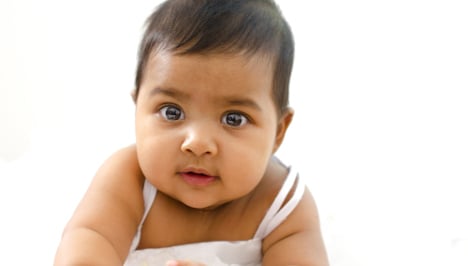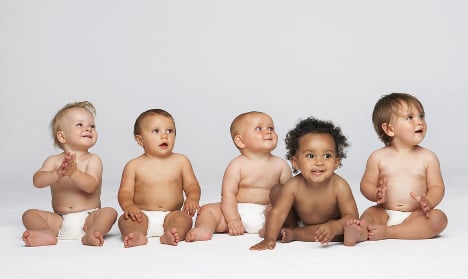The Society for the German Language reported on Wednesday that the top two were followed by Marie and Alexander in second place and Sophia and Paul at number three – all occupying exactly the same spots in the table as they did last year.
In fact, there were no new entries at all in either the girls' or boys' top 10 – belying an early prediction at New Year that Leah would make the cut for girls.
This year's list would even be familiar to someone who hadn't checked in the last 10 years, with boys receiving the same top three names in 2004 while Marie, Sophie and Maria were most popular for last decade's baby girls.
But there were some regional differences: north and east Germans' top 10 for girls included Charlotte and Johanna, while southerners and westerners liked Anna and Louisa.
Among boys, meanwhile, Finn, Jonas and Oskar were among the most popular names in the north and east, while southerners and westerners preferred Jacob and Leon.
2014 saw 438,491 girls and 459,301 boys named in Germany, a ratio of 48.8 percent to 51.2 percent.
Their parents chose from among 56,919 different names, of which 38,175 were given to only one child each – although on average, each name was given to 15.8 children.
The top 10 lists accounted for just 15.5 percent of names parents gave their children.
Germans' top 10 baby names in 2014
1. Top of the list were last year's champions, Maximilian and Sophie. Parents loved Sophie for girls across Germany, but Maximilian was most popular in the south.

2. Second place went to Marie for girls and Alexander for boys.

3. Sophia and Paul – a name particularly beloved of east Germans last year – rounded out the top threes.

4. Maria and Elias, both staples of the last 10 years of baby names, both came in fourth.

5. Emma and Luis slotted into fifth place. Luis is a relatively new arrival in the top 10 since 2010.

6. At number six, while Luka has been among the most popular names for years, Mia is holding onto a mid-table place it's held since 2009.

7. Hannah and Ben have both been top-10 contenders only for the last three or four years.

8. Emilia hasn't been in the top 10 before in the last few years, but Leon is an old favourite – although it hasn't come top since 2007.

9. Anna and Lukas – both fixtures of any gathering of Germans born in the last 20 years – come in ninth.

10. Last but not least: Johanna and Noah, both names beloved of northerners and westerners.





 Please whitelist us to continue reading.
Please whitelist us to continue reading.
Member comments